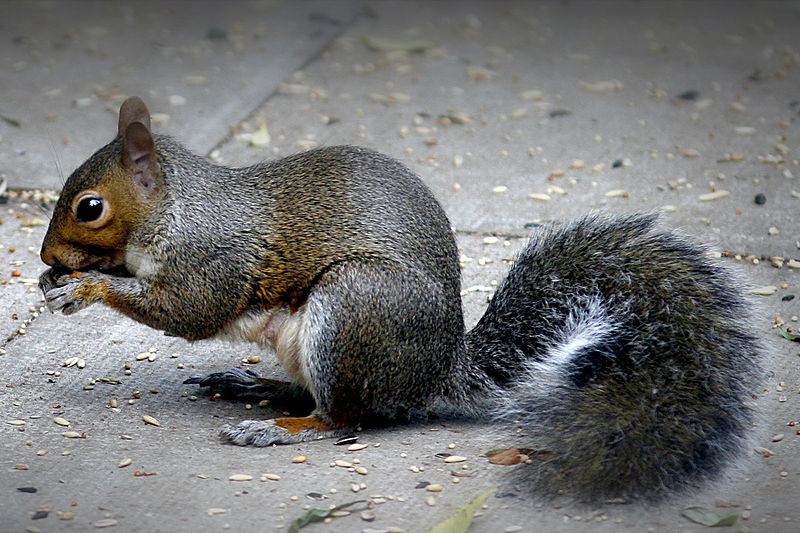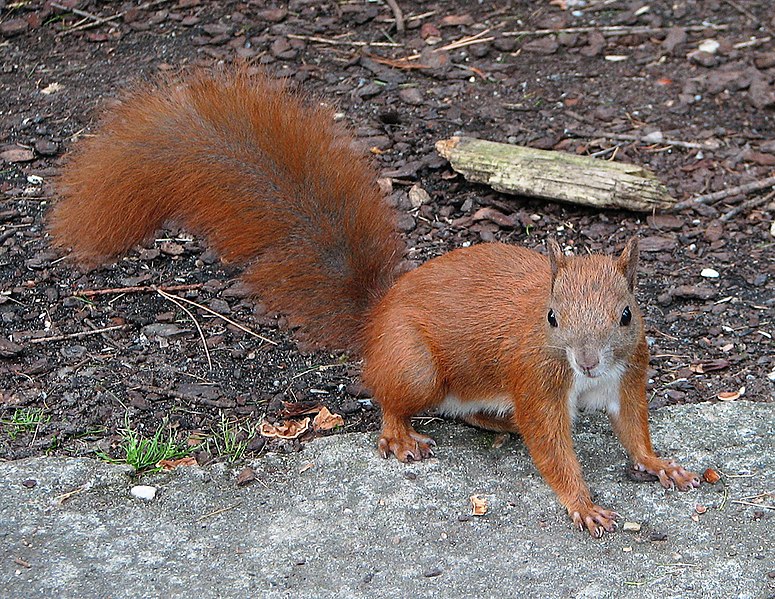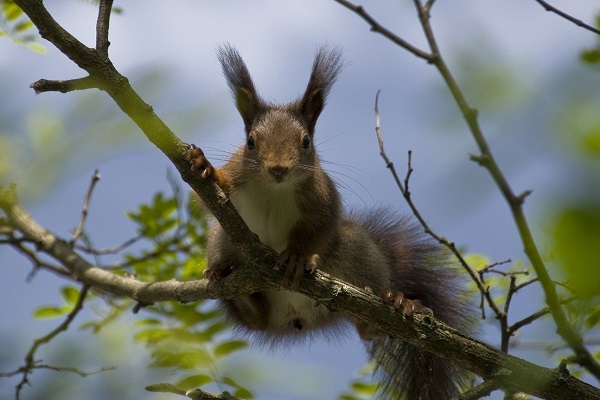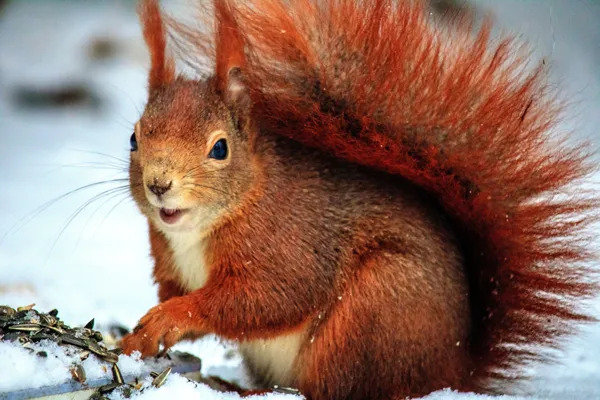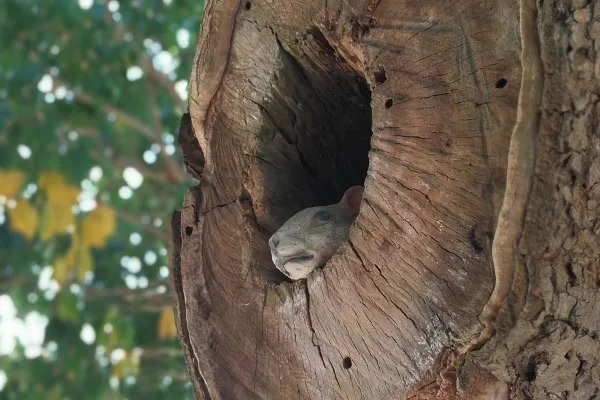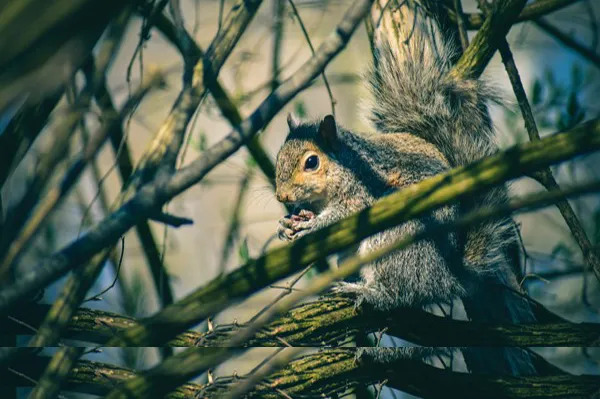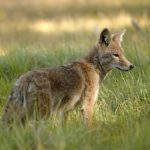
- Brian Moss (President)
- AAAC Wildlife Removal
11/28/2022 Total words : 2722
Do Squirrels Spread Disease? Surprising Facts About Urban Wildlife
Yes, squirrels can spread certain diseases to humans and pets, but the risk is generally low with proper precautions. Picture this It's a sunny Saturday afternoon, and you're enjoying a peaceful moment in your backyard. Birds are chirping, the breeze is gentle, and suddenly, you spot a squirrel darting across the lawn. It's a common sight, one that usually brings a smile to your face. But as cute as these little critters are, there's a question lingering in the back of your mind: Do squirrels spread disease? Let's face it, we've all been there. Whether it's watching them scamper up trees or sneak a snack from the bird feeder, squirrels are an inevitable part of outdoor life. While they often seem harmless, there's more to these furry friends than meets the eye. Yes, squirrels can spread certain diseases, and it's important to understand what those are and how to protect yourself and your pets. Key Takeaways Squirrels can carry and transmit certain diseases. Most squirrel-related diseases are rare but can be serious. Understanding how diseases are spread helps in prevention. Simple precautions can significantly reduce the risk of disease transmission. Understanding Squirrel Behavior Alright, let's dive into the world of our bushy-tailed neighbors! Squirrels are more than just cute little creatures scampering around your yard; they have some fascinating behaviors that might surprise you. A Day in the Life of a Squirrel Ever wondered what squirrels do all day? Well, they’re busy little acrobats! From sunrise to sunset, squirrels are out and about, foraging for food, burying nuts, and maintaining their nests, known as dreys. These nests are typically found high up in trees, constructed from twigs, leaves, and whatever soft materials they can find. When winter comes, these dreys become their cozy havens against the cold. Why They Might Be Visiting Your Property So why do squirrels love your yard so much? The answer is simple: food and shelter. Squirrels are always on the lookout for their next meal. Your bird feeder, garden, or even your trash can become their buffet. And those towering trees or attic spaces? Perfect spots for nesting! Squirrels are opportunistic and will take advantage of any easy access to food and shelter. The Social Life of Squirrels Despite their solitary nature when it comes to feeding, squirrels are quite the social butterflies within their own family units. You might spot them chasing each other around in playful games, especially during the mating season. And speaking of family, female squirrels are fiercely protective of their young, often relocating their babies if they sense danger. Interaction with Humans and Other Animals Squirrels are naturally curious but can be skittish around humans. However, in areas where they've become accustomed to people, they might venture closer, sometimes even taking food from your hand (not recommended, by the way – we'll get to why later!). When it comes to other animals, squirrels are pretty savvy. They have a unique alarm call to warn each other of predators like hawks, cats, or dogs, demonstrating their strong survival instincts. Common Diseases Spread by Squirrels Alright, it's time to get into the serious stuff – the potential health risks associated with our furry friends. While it's not common, squirrels can carry and transmit certain diseases. Let's break down the ones you should be aware of. Leptospirosis Leptospirosis is a bacterial disease that can affect both humans and animals. It's typically spread through contact with the urine of infected animals, which can contaminate water or soil. If you have a curious pup that enjoys sniffing around where squirrels frequent, or if you handle materials where squirrels have been, there's a slight risk of contracting this disease. Symptoms in humans can range from mild flu-like signs to severe complications, so it's always good to be cautious. Salmonella You might be more familiar with salmonella as a foodborne illness, but it can also be spread by squirrels. These little critters can carry salmonella bacteria in their feces. If they’ve been in your attic or around your home, and you come into contact with contaminated surfaces, you could be at risk. Symptoms typically include diarrhea, fever, and abdominal cramps. Proper hygiene and cleanliness can significantly reduce this risk. Lyme Disease This one might surprise you – while squirrels themselves are not the primary carriers of Lyme disease, they can host the ticks that spread it. Lyme disease is caused by the bacteria Borrelia burgdorferi, which is transmitted to humans through the bite of infected black-legged ticks (also known as deer ticks). If squirrels are frequent visitors to your yard, there's a chance they could be transporting these ticks closer to you. Symptoms of Lyme disease include a characteristic rash, fever, headache, and fatigue. Tularemia Tularemia, also known as "rabbit fever," is a rare but serious infectious disease caused by the bacterium Francisella tularensis. Squirrels can be carriers, and humans can contract it through direct contact with an infected animal, insect bites, or even inhaling contaminated dust. Symptoms vary widely but can include skin ulcers, fever, and swollen lymph glands. It's a rare condition, but worth being aware of if you’re handling squirrels or their nesting materials. Plague Yes, the plague still exists, and squirrels can be carriers! The bacterium Yersinia pestis, responsible for the plague, is primarily spread by fleas that infest rodents, including squirrels. While it’s extremely rare in modern times, cases do still occur, mostly in rural areas. The symptoms can range from swollen lymph nodes to severe respiratory issues. The risk is minimal, but it's a reminder of why pest control and hygiene are so important. How Common Are These Diseases? Before you panic, it's important to note that while squirrels can carry these diseases, the likelihood of transmission to humans is relatively low. Most cases occur under specific conditions, such as handling an infected squirrel or coming into direct contact with their waste. Nevertheless, being aware of these diseases helps you take proper precautions to protect yourself and your family. Understanding the potential health risks associated with squirrels is the first step in keeping your home safe. Next, we'll dive into how common these transmissions are and what steps you can take to minimize the risks even further. Keep reading for some practical tips and insights! Factors Affecting Disease Transmission Alright, let's get down to the nitty-gritty of how these bushy-tailed critters might pass on some unwanted souvenirs. Trust me, it's not as straightforward as you might think! First off, let's talk about direct contact. Now, I know what you're thinking - "Who in their right mind is out there cuddling with squirrels?" Well, you'd be surprised! Whether it's well-meaning folks trying to help an injured squirrel or those misguided souls attempting to make the next viral TikTok video, direct contact happens more often than you'd expect. This is your prime opportunity for disease transmission, folks. Bites, scratches, or even just handling a squirrel can potentially expose you to whatever nasties they might be carrying. But here's the kicker - you don't even need to touch a squirrel to potentially catch something. Indirect contact is sneakier and, frankly, more common. Ever had a squirrel raid your bird feeder? Or maybe you've found their little "gifts" in your yard? Yep, that's indirect contact right there. Diseases can spread through their droppings, urine, or saliva left on objects in your environment. Now, let's give a not-so-warm welcome to the real villains of our story: ticks and fleas. These little bloodsuckers are the ultimate double agents. They feast on infected squirrels, then hop off to find their next meal - which could be you or your pets. Lyme disease, for instance, is primarily spread this way. So while you're busy watching that adorable squirrel scamper across your lawn, a tick might be using it as an Uber to get to you. But wait, there's more! Environmental factors play a huge role too. Wet, warm conditions? That's a theme park for bacteria like leptospirosis. Drought causing squirrels to seek water sources closer to human habitation? Hello, increased chance of contact. Climate change is shaking things up, folks, and not in a good way. And let's not forget about population density. The more squirrels squeezed into an area, the higher the chances of disease spread among them - and potentially to us. So, there you have it - the full scoop on how these cute little furballs might be secret disease couriers. But don't panic just yet! Remember, knowledge is power. Now that you know the factors at play, you're better equipped to keep yourself safe while still appreciating our squirrely neighbors from a distance. Assessing the Risk: Should You Be Worried? Alright, let's take a deep breath and put on our rational thinking caps. We've talked about diseases and transmission factors, and I can almost hear some of you reaching for hazmat suits. But before you go full doomsday prepper on me, let's put this squirrel situation into perspective. First things first: Yes, squirrels can carry diseases. But here's the kicker - the risk of actually contracting a disease from a squirrel is pretty low. I'm talking "winning-the-lottery-while-being-struck-by-lightning" kind of low. Okay, maybe not that low, but you get the idea. Think about it - how many times have you seen a squirrel in your life? Now, how many times have you caught a disease from one? I'm willing to bet the answer to the second question is a big fat zero for most of you. And if it's not, well, you might want to reconsider your squirrel-cuddling hobby. Let's put this in perspective with some other wildlife-borne disease risks: Mosquitoes: These tiny terrors are responsible for hundreds of thousands of deaths globally each year. Malaria, Zika, West Nile - the list goes on. Suddenly, squirrels aren't looking so scary, are they? Ticks: While squirrels can carry ticks that spread Lyme disease, you're much more likely to pick up a tick from tall grass or wooded areas than from a squirrel directly. Raccoons: These masked bandits are more likely to carry rabies than squirrels and are often more willing to interact with humans and our trash. Bats: Another rabies risk, plus they can spread histoplasmosis through their droppings. So, where do squirrels rank on this list? Pretty low, my friends. They're more likely to raid your bird feeder than give you a life-threatening illness. But here's the thing - I'm not saying you should throw caution to the wind and start a squirrel petting zoo in your backyard. The risk might be low, but it's not zero. It's all about smart coexistence. Think of it like driving a car. Is there a risk? Sure. But do you never leave your house because of it? Of course not. You take precautions - you wear a seatbelt, obey traffic laws, and stay alert. Same deal with squirrels. A little common sense goes a long way. So, should you be worried? Not excessively, no. But should you be aware and take basic precautions? Absolutely. It's all about finding that sweet spot between paranoia and recklessness. Prevention and Safety Measures Alright, nature lovers, it's time for the good stuff - how to keep yourself safe while still enjoying our bushy-tailed neighbors. Don't worry, I won't be recommending any squirrel-proof bunkers or acorn-detecting alarms. These tips are all about practical, common-sense measures that'll let you coexist peacefully with our furry friends. Keep your distance I know, I know, they're adorable. But remember, squirrels are wild animals, not plush toys. Admire them from afar, like that crush you had in high school. A good rule of thumb? If you can reach out and touch a squirrel, you're too close. Back it up, buddy! Don't feed the wildlife I get it, tossing peanuts to squirrels seems harmless. But it's like giving sugar to a toddler - it only encourages bad behavior. Plus, it brings them closer to you, increasing the risk of disease transmission. Let them forage naturally; they're pretty good at it. Seal up your home Think of your house as a fortress against the squirrel army. Check for and seal any potential entry points. This isn't just about disease prevention - it's also about avoiding a surprise squirrel roommate. Trust me, they make terrible tenants. Keep your yard tidy Fallen fruit, open trash cans, or unsecured compost bins are like an all-you-can-eat buffet for squirrels. Clean up regularly to avoid attracting them too close to your living space. Use gloves when gardening You never know what a squirrel might have left behind in your flowerbeds. Gloves protect you from potential pathogens in soil or on plants that squirrels may have contaminated. Protect your pets Keep your furry family members up to date on their vaccinations, especially for diseases like leptospirosis. And maybe reconsider letting Fluffy roam free if you have a high squirrel population in your area. Practice good hygiene Wash your hands thoroughly after being outdoors, especially before eating. It's not just for squirrel safety - it's good practice in general. Your immune system will thank you. Know when to call for help If you find an injured or sick squirrel, resist the urge to channel your inner Snow White. Contact a local wildlife rehabilitator instead. They're trained to handle these situations safely. Be tick aware Since ticks are a major disease vector, check yourself and your pets for ticks after spending time outdoors, especially in wooded areas. Educate yourself and others Knowledge is power, folks. The more you understand about squirrels and their behavior, the better equipped you'll be to coexist safely. Myths and Misconceptions Alright, folks, it's time to play a little game I like to call "Squirrel Fact or Squirrel Fiction?" We're about to bust some myths wider than a squirrel's cheeks stuffed with acorns. So, grab your nutcracker of truth, and let's get cracking! Myth #1: All squirrels carry diseases Fiction! While it's true that squirrels can carry diseases, not every squirrel is a walking petri dish. Many squirrels are perfectly healthy. It's like assuming every human you meet has the flu - possible, but not probable. Myth #2: If a squirrel bites you, you'll definitely get rabies Fiction with a capital F! Squirrels rarely carry rabies. In fact, small rodents (like squirrels, rats, and chipmunks) are almost never found to be infected with rabies and have not been known to transmit rabies to humans. That said, if you get bitten, clean the wound and see a doctor anyway. Better safe than sorry! Myth #3: Squirrels spread diseases by dropping acorns on people I can't believe I have to say this, but... fiction! This isn't some cartoon where squirrels are secretly plotting our demise via acorn bombardment. Diseases spread through more direct means, like bites or contact with bodily fluids. The acorns are just collateral damage in their never-ending quest for snacks. Myth #4: You can't get sick from squirrels if you don't touch them Sorry, but this one's fiction too. While direct contact is riskier, remember our chat about indirect transmission? Contaminated surfaces or tick bites can spread diseases without you ever laying a finger on a squirrel. Myth #5: Feeding squirrels bread is a good way to keep them healthy and disease-free Fiction! Bread isn't a natural part of a squirrel's diet and doesn't provide the nutrients they need. Plus, regular feeding encourages them to rely on humans, bringing them closer to us and potentially increasing disease transmission risks. Let them stick to their nuts and berries - they've been managing just fine for millions of years. Myth #6: If you see a squirrel active during the day, it must be rabid Fiction! Squirrels are diurnal creatures, meaning they're naturally active during the day. A nighttime squirrel sighting would be more unusual (though still not necessarily a sign of rabies). Myth #7: Squirrels remember humans who feed them and won't transmit diseases to their "friends" Oh, bless your heart if you believed this one. It's fiction, folks. Squirrels don't have a "nice human" list they check before deciding whether to transmit a disease. They're wild animals, not your secret woodland BFFs. Myth #8: City squirrels carry more diseases than country squirrels This one's tricky, but generally fiction. While urban environments can create different health challenges for squirrels, rural squirrels have their own set of potential pathogens. Neither is inherently "dirtier" than the other.
What Are Baby Squirrels Called? Discover Their Adorable Names
Baby squirrels are called kits or kittens. Ever found yourself wondering about the tiny, adorable creatures scampering around your backyard or local park? Well, you're in for a treat! Today, we're diving into the delightful world of baby squirrels. You might be surprised to learn what these little furballs are called and just how fascinating their early lives can be. Imagine stumbling upon a nest of baby squirrels, eyes barely open, and tiny bodies snuggled together. Intrigued? Good! Because by the end of this article, you'll be well-versed in all things baby squirrels—from their cute-as-a-button names to the incredible journey they embark on from birth to independence. So, let's jump right in and uncover the charming secrets of these pint-sized adventurers! Key Takeaways Baby squirrels are called kits or kittens. Discover the stages of a baby squirrel's development. Learn how mother squirrels care for their young. Fun facts and trivia about baby squirrels. The Name Game: What Are Baby Squirrels Called? So, what exactly do we call these tiny bundles of joy? Drumroll, please... Baby squirrels are called kits or kittens! Yep, just like the playful felines we know and love, these little ones share a name that's as cute as they are. Why kits or kittens, you ask? Well, the term "kit" is a common name for many small mammals' offspring, including foxes and rabbits. The word "kitten" naturally extends from there, adding an extra layer of endearing charm to these critters. No matter what you call them, one thing's for sure: baby squirrels are downright adorable. But wait, there's more! In different regions or among various squirrel species, you might come across other names or nicknames for these little guys. However, "kits" and "kittens" are the most widely recognized and used terms. It's fascinating how a simple name can evoke such a vivid image of playful, curious, and ever-so-slightly mischievous creatures. Now that we know what to call them, let's delve into their early life stages and discover how these kits grow up to be the nimble and clever squirrels we see darting through the trees. The Early Days: From Birth to Independence From the moment they are born, baby squirrels, or kits, embark on an incredible journey of growth and discovery. Let's take a closer look at their early days and how they transform from tiny, helpless newborns into agile, curious adventurers. Birth and Early Development When baby squirrels first enter the world, they are incredibly small and vulnerable. Kits are born hairless, with their eyes tightly shut, and are completely dependent on their mother for warmth and nourishment. At birth, they weigh just about an ounce and fit snugly in the palm of your hand. During the first few weeks, these little ones experience rapid development. Around three weeks old, their fur starts to grow, giving them that characteristic soft and fuzzy appearance. By the time they are four weeks old, their eyes begin to open, revealing a world full of new sights and opportunities for exploration. Growing Up: Learning to Climb and Forage As baby squirrels grow, their physical and behavioral transformations are nothing short of remarkable. By six to eight weeks old, they start to venture out of the nest, albeit cautiously. This period is crucial for learning the essential skills they need to survive. Climbing is one of the first major milestones. Watching a kit take its first, wobbly steps up a tree trunk is both heartwarming and entertaining. With each attempt, they become more adept, honing their balance and agility. Playtime plays a vital role in their development. Through play, baby squirrels practice pouncing, chasing, and wrestling with their siblings. These activities are not only fun but also critical for developing the coordination and strength needed for climbing, jumping, and escaping predators. During this phase, they also begin to forage for food. While still nursing, they start nibbling on solid foods, experimenting with nuts, seeds, and fruits. This gradual introduction to their adult diet helps prepare them for the independent life that lies ahead. The journey from birth to independence is full of challenges and learning experiences for baby squirrels. Each step brings them closer to becoming the agile, resourceful creatures we see darting through the trees. But their adventure doesn't end here. Next, we'll explore how mother squirrels care for their young, ensuring they grow up strong and capable. Mama Knows Best: How Mother Squirrels Care for Their Young Mother squirrels are the ultimate multitaskers, tirelessly working to ensure their kits grow up safe, healthy, and ready to face the world. Let’s dive into the incredible ways these dedicated moms care for their young. Building the Nest: A Safe Haven Every great adventure starts with a safe home, and for baby squirrels, that home is a cozy nest. Mother squirrels are meticulous builders, creating nests known as dreys or dens. Dreys are typically found in tree branches, constructed from twigs, leaves, and moss, forming a snug, weather-resistant haven. Dens, on the other hand, are usually located in tree cavities or abandoned woodpecker holes, providing extra protection from the elements. The mother squirrel ensures the nest is not only secure but also comfortable. She lines it with soft materials, creating a warm and inviting space for her kits. This nest serves as the primary base where the young squirrels spend their early weeks, growing and developing under their mother's watchful eye. Feeding Time: From Milk to Solid Food In the first few weeks of life, baby squirrels rely entirely on their mother’s milk for nutrition. Nursing sessions are frequent, ensuring the kits receive all the necessary nutrients to support their rapid growth. The mother’s milk is rich and nourishing, perfectly designed to help her babies develop strong bones and healthy bodies. As the kits grow older, around six weeks, the mother gradually introduces them to solid foods. She brings back a variety of foraged items—nuts, seeds, fruits, and even fungi—to the nest, encouraging her kits to sample these new foods. This weaning process is critical as it prepares the young squirrels for their future independent foraging adventures. Teaching Survival Skills Mother squirrels are also excellent teachers, imparting essential survival skills to their young. She demonstrates how to find food, navigate the treetops, and recognize potential dangers. By watching and imitating their mother, the kits learn the vital techniques needed to thrive in the wild. One of the most fascinating aspects of this teaching process is the communication between the mother and her kits. Squirrels use a variety of vocalizations and tail movements to convey messages, from warnings about predators to calls for feeding time. This form of communication helps the young squirrels understand their environment and develop their own social skills. Protecting the Kits A mother squirrel's protective instincts are second to none. She constantly monitors the nest for threats, ready to fend off predators or relocate her kits if necessary. In case of danger, she can carry each kit, one by one, to a safer location, showcasing her strength and determination. The bond between a mother squirrel and her kits is a testament to nature’s incredible maternal instincts. Her efforts ensure that her young have the best possible start in life, equipping them with the skills and knowledge they need to navigate their world. Now that we’ve seen the lengths a mother squirrel goes to for her kits, let’s dive into some fun facts and trivia about baby squirrels that are sure to delight and amaze you! Fun Facts and Trivia About Baby Squirrels Ready for some squirrel trivia that will make you the star of your next nature chat? Here are some fascinating and fun facts about baby squirrels that are sure to surprise and delight you! Fact 1: Squirrel Twins and Triplets While it might seem like a single baby squirrel is enough to keep a mother busy, did you know that mother squirrels often give birth to twins or even triplets? In fact, it’s not uncommon for a squirrel nest to have three or more kits! These siblings grow up together, learning from each other and providing endless entertainment with their playful antics. Fact 2: Squirrels Have Excellent Memories Even as babies, squirrels exhibit an impressive ability to remember where they’ve hidden their food. This skill, known as scatter hoarding, begins to develop early in their lives. By observing their mother and practicing hiding nuts and seeds, young squirrels hone their memory skills, which are crucial for their survival. Fact 3: Squirrel Communication Baby squirrels are surprisingly vocal. They communicate with their mother and siblings using a variety of sounds, including chirps, squeaks, and purrs. Each sound has a specific meaning, whether it's calling for food, alerting to danger, or simply playing. These early vocalizations are essential for their social development and help them integrate into the squirrel community. Fact 4: The Tail Tale One of the most distinctive features of a squirrel is its bushy tail, and baby squirrels are no exception. Their tails are not just for show; they serve multiple purposes. From helping with balance while climbing to acting as a blanket to keep warm, and even as a communication tool, the tail is an essential part of a squirrel’s life right from the start. Fact 5: Fast Learners Baby squirrels grow and learn at an astonishing rate. Within just a few weeks, they go from being completely dependent on their mother to adventurous little explorers. By eight weeks old, they’re already practicing climbing, jumping, and foraging—skills that are critical for their independence. Fact 6: Lifespan and Growth While their early months are packed with growth and learning, did you know that squirrels can live quite long lives for small mammals? In the wild, they can live up to six years, but in captivity, with fewer predators and ample food, they can live up to 20 years. This extended lifespan allows them to refine their survival skills and contribute to the ecosystem for many years. These fun facts highlight just how remarkable baby squirrels are. From their early days in the nest to their rapid development and fascinating behaviors, there’s so much to appreciate about these tiny yet mighty creatures. Next time you spot a squirrel scampering up a tree, you’ll have a newfound admiration for the journey it took to get there! Conclusion And there you have it—a delightful journey through the early lives of baby squirrels, from their adorable names to their incredible development and the unwavering dedication of their mothers. These tiny, playful kits, or kittens, grow up in nests meticulously built for their safety and comfort, learning essential survival skills under the watchful eyes of their mothers. We've explored the fascinating stages of their growth, from hairless newborns to adventurous young climbers, and discovered how they transition from a diet of nourishing milk to solid foods. We've also uncovered fun and surprising facts, like their impressive memories, vocal communication, and the many uses of their bushy tails. So, next time you're out and about, keep an eye on the trees and perhaps you'll spot a squirrel family in action. Remember, these little creatures have an amazing story of growth, learning, and survival. Share your newfound knowledge with friends and family, and inspire others to appreciate the wonder of wildlife in their own backyards. Whether you're a curious nature lover, a parent looking to educate your kids, or just someone who enjoys a good animal story, we hope this exploration of baby squirrels has brought a smile to your face and a spark of curiosity to your mind. Now go out there and celebrate the incredible world of squirrels!

- Brian Moss (President)
- AAAC Wildlife Removal
11/28/2022
Total words : 1947
Do Squirrels Eat Tree Bark?
You probably see squirrels all the time in your backyard or when you’re out for a walk in the park. They’re fun to watch as they scamper up trees and bury their nuts for winter. But sometimes, you may notice them nibbling on tree bark. So, what gives? Do squirrels actually eat tree bark? So, Do Squirrels Eat Bark? The answer is yes! Most squirrels prefer to eat nuts, fruits, and seeds but they do, from time to time eat tree bark. Red squirrels, grey squirrels, fox squirrels, tree squirrels, and flying squirrels are known to nibble on tree bark. Tree bark makes up a large part of the food source. Squirrels will strip bark on hardwood and softwood trees in any tree species. Squirrels prefer the softer inner bark, but they'll also eat the more rigid outer bark if nothing else is available. Why Do Squirrels Eat Bark? Squirrels chew bark for a variety of reasons. It can be for sustenance, to sharpen their teeth, or to get materials to build their nests. In the winter, when food is scarce, squirrels may eat tree bark to survive. Tree bark is a good source of fiber, which helps them stay full. Squirrels also get sodium and other nutrients from tree bark. Squirrels will gnaw on tree bark to help keep their teeth sharp. Their incisors, or front teeth, grow about 5 inches per year! Chewing on tree bark helps to keep their teeth at a manageable length. Finally, squirrels chew on tree bark to get materials for their nests. They’ll strip the bark off of twigs and branches to use as bedding material. The soft inner bark is especially useful for lining their nests. Are All Squirrels Bark Eaters? While all squirrels will nibble on tree bark from time to time, not all of them do it with the same frequency. For example, red and grey squirrels are more likely to consume tree bark than their Fox or flying cousins. This is likely because red and grey squirrels live in areas where there are fewer other food options available. What Damage Do Squirrels Cause to Trees? While tree bark is a common part of a squirrel’s diet, that doesn’t mean that they don’t cause damage to trees when they eat it. In fact, excessive bark eating can be detrimental to the health of a tree. When squirrels strip away the bark, they expose the inner layers of the tree to elements. This can cause the tree to become dehydrated and stressed, which can lead to diseases such as canker or death. What Causes Squirrels to Chew Off Branches? There are several reasons why a squirrel might chew off a branch. The most common cause is that they're looking for food. It usually happens in the winter when food is scarce. If there is insufficient food, squirrels will start to nibble on tree branches as the tree sap contains nutrients. Another reason why squirrels might chew on branches is to file or sharpen their teeth. Squirrels' teeth constantly grow, so they need to gnaw on something hard to try and keep them at a manageable length. If there’s nothing else available, they’ll start chewing on tree branches. Branches also make for great nesting material. Squirrels will strip the bark off of twigs and branches to use in their nests. What to Do If Squirrels Are Chewing Your Trees If you've noticed that squirrels or other animals are chewing on your trees, there are a few things to try to deter them. First, you can try wrapping the trunk of the tree with chicken wire. This will create a barrier that squirrels can’t get through. Just be sure to wrap it tightly so that there are no gaps for them to squeeze through. You can also try spraying the tree with a commercial squirrel repellent. These repellents usually contain ingredients like capsaicin or naphthalene, which discourage squirrels from chewing on the tree. Whatever method you choose, keep an eye on the tree and squirrels. If they are undeterred by your efforts, it's time to call in a professional. Need Help With Nuisance Squirrels on Your Property? If you need help with squirrel removal on your property, AAAC Wildlife Removal is here to help! We'll take care of the problem quickly and efficiently so that you can enjoy your yard again. Give us a call today to schedule a consultation! Final Words Despite how adorable and harmless they may appear, squirrels can cause serious damage to your trees. This is especially bad if the tree is young or already in a weakened state. If you’ve noticed that squirrels are starting to chew on your trees, don’t wait to take action. Deter them with one of the methods above, or call in a professional to take care of the problem for you. Learn More About Squirrel: Kinds of Squirrels Do Squirrels Bark? How Long Do Squirrels Hibernate? Where Did Squirrels Originate? Originally published at AAAC Wildlife Removal: https://aaacwildliferemoval.comblog/squirrels/do-squirrels-eat-tree-bark

- Brian Moss (President)
- AAAC Wildlife Removal
11/28/2022
Total words : 851

- Brian Moss (President)
- AAAC Wildlife Removal
11/28/2022 Total words : 851
Do Squirrels Eat Tree Bark?
You probably see squirrels all the time in your backyard or when you’re out for a walk in the park. They’re fun to watch as they scamper up trees and bury their nuts for winter. But sometimes, you may notice them nibbling on tree bark. So, what gives? Do squirrels…
Do Squirrels Bark?
Squirrels are known to make lots of noises. They make lots of different chirps, grunts, and other noises. Common species like the Eastern gray squirrel are considered to be very chatty animals. However, do they ever bark? This article will explore the squirrel noises that these furry creatures make, and whether or not they bark. Noises Squirrels Make If you've ever watched grey squirrels in your backyard play, then you know that they're chatty and full of energy. They will chatter at each other, chirp at other animals, and they will even make warning noises. These are just some of the sounds that squirrels can be heard making when living out in their natural habitat. Squeaking One of the most common noises that squirrels make is a high-pitched squeaking noise. This sound has many different meanings, so it's hard to generalize what they might be doing when making this type of noise. It could mean excitement or fear, depending on their behavior and other factors around them at the time. Chattering Another noise that squirrels make is a rapid chattering sound. This can be heard when two squirrels are playing, bickering with each other, or even at the same time as their squeaking noises. Chattering sounds will vary in pitch and speed depending on the situation. Grunts/Grunting Squirrels also make grunting sounds as a way to communicate with each other. These noises can be heard when they are excited or angry about something, and also during mating season. Moaning When squirrels are worried or anxious, they will let out a low moaning sound. This can be heard when they know that there is danger nearby, like if a predator is nearby or they are being hunted. The sound is usually accompanied by tail flicking and other signs of distress. Buzzing Squirrels make a buzzing noise when they are in a state of alarm. This sound is sometimes accompanied by tail flicking and other signs that something nearby might be dangerous or threatening to them, like if you're trying to pick up one off the ground. Barking The main sound that squirrels are known for producing is a "bark" which actually sounds more like the noise of a squeaky toy. The sound can resemble a dog barking but is much more high-pitched. This can be heard when they feel threatened by another animal coming near their territory, or if someone comes too close to them while they are eating. It usually means they are warning other animals to stay away from the area. It has been speculated that they do this to sound like a larger animal. Barking Squirrels? So, do squirrels bark? The answer is yes. They make barking noises to warn other animals or people away from them when they are in danger, and they also make barking sounds when there is a predator nearby. A squirrel barking at you isn't necessarily a cause for alarm. They are simply trying to protect themselves and let you know that they aren't helpless or weak, as many predators think of them as prey. Squirrel Alarm Calls These sounds squirrels make are all alarm signals or calls. An alarm call is a way for them to communicate with other squirrels and tell the world around them that there is danger nearby. There are different types of alarm calls squirrels to make depending on the situation. Here are the common calls you may hear, and what they mean: Aggression Calls/Signals These are sounds squirrels make warning nearby squirrels that they are trespassing and that the squirrels are not happy about it. These sounds can sometimes be accompanied by tail flicking if they make a warning call as well, which can mean an escalation from those initial signals to more serious ones. The sound of screeches, rattles and barks are the most common types of aggressive calls. Hunger Calls These are calls usually done by baby squirrels when they are calling for their mother to come to feed them. These "muk-muk" sounds are low puffing noises that are done when the baby is still in the nest. Noisy Threat Calls When squirrels are in danger or feel threatened, they will make a sound that is much louder than their other noises to scare off whatever it is that might be threatening them. Barking is usually associated with this sound and is often accompanied by tail flicking as well. Scientists have categorized barking into two different types: "kuk" and "quaa" barks where "Kuk" is a short bark and "quaa" is a longer bark. Mating Calls These are calls or signals a male squirrel is using to attract female squirrels. This sound resembles that of a baby squirrel, this signals that they are not a threat to the female squirrel. It is usually done in a series of "muk-muk" noises. Adult squirrels make this noise during mating season when they are looking for another squirrel to mate with. What should I do if a squirrel barks at me? If you encounter a barking squirrel, there's no need to worry. It is simply trying to let you know that even though they are small, they are still going to protect themselves. You should respect their warning and back away slowly while watching the squirrel make sure it doesn't become aggressive or attack you. If a barking squirrel is in your yard, there's no need to be scared of them either. The only reason a squirrel would bark when inside your backyard is that it's protecting its territory. Squirrel Removal Near Me If you are tired of squirrels in your yard, it is easy to find a professional who can help you get rid of the pesky animals by trapping them. AAAC Wildlife Removal is a trusted name in the wildlife removal business and has helped thousands of homeowners resolve their pest wildlife problems. Call us now to get rid of those pesky animals! Wildlife Exclusion After removing squirrels from your yard, the next step is to make sure they don't come back. You can do this by getting squirrel exclusion and prevention methods installed on your property that will keep them out for good. There are sealing caps that you can put over any holes in the foundation of your home or sheds, as well as other things like wire mesh that you can put over vents leading into your attic. Attic Restoration If you find that squirrels have already made their way into your attic, it is important to get them out as soon as possible or they could damage the insulation in your home. This will require an expert who knows how to safely remove the animals and restore the area so there are no remnants of what once was inside. At AAAC Wildlife Removal, we provide attic restoration services that will make sure the area is safe and clean. Wildlife Damage Repair Damage repair is also something we provide to make sure the affected areas of your home are fixed. This can include things like fixing holes in the roof or siding, restoring insulation to your attic, and replacing any drywall that has been damaged. If you need help with wildlife damage repair, give us a call today! Dead Animal Removal Sometimes a squirrel or other small wildlife will crawl inside your home or building and die. This can cause a horrible odor that can be tough to get rid of. Removing the carcass can be tricky because the animal may have become stuck in an area that makes it difficult to remove, like a cavity between two walls. At AAAC Wildlife Removal, we can help you get rid of dead animals that have been stuck inside your home. We will locate the animal, remove it as well as clean up any mess that was left behind from the carcass and ensure there is no odor or damage to your building. Frequently Asked Questions Why do squirrels make sp much noise? Squirrels make noise to communicate with other squirrels and animals. The most common noise squirrels will make is a barking sound, which they use to warn each other of danger or threats in their territory. Male squirrels also have mating calls that they use to attract female ones so the sound may be different than what you would hear from one warning another about something dangerous nearby. What should I do if a squirrel is in my yard? If you see squirrels eating in your backyard, the best thing to do would be to leave them alone and let them go on their way. Unless they are already causing damage to your property or are in your attic, then that is a whole different story! If you see squirrel nests in trees near your house, you can trim back branches to make it harder for them to access your roof. You should also seal up any holes in your home that they could use to get inside. What should I do if there's a squirrel in my attic? If you have found squirrels living in your attic, you must get them out right away. The longer they are allowed to stay inside the more likely they will cause damage and make repairs even more expensive for you. Give us a call and we can help with getting rid of squirrels. What is the most common noise that I will hear from a squirrel? The most common noises include barking, chirping, screaming, squeaking, or even purring. Sometimes it will be a combination of sounds to signal different things like warning signs and mating calls. How long do squirrels hibernate? Do squirrels sleep during winter? This is a common question from people, however, squirrels do not hibernate. They go into a state called torpor where they sleep more during the winter months. They will also spend more time in their nests and less time foraging for food since there are not as many resources available to them. Originally published on https://aaacwildliferemoval.com/blog/squirrels/do-squirrels-bark

- Brian Moss (President)
- AAAC Wildlife Removal
11/28/2022
Total words : 1674

- Brian Moss (President)
- AAAC Wildlife Removal
11/28/2022 Total words : 1674
Do Squirrels Bark?
Squirrels are very chatty animals and they are known to make a variety of sounds and noises. This makes them very annoying in your backyard. But do squirrels bark? Click to learn more about squirrel noises and their alarm calls.
Do Squirrels Have Nests?
Squirrels are a common sight in most yards and parks. They're cute, they're fun to watch, and sometimes they'll come right up to you for a handout. But have you ever stopped to think about how squirrels live? Do they build nests? Where do squirrel babies sleep when it's cold out? In this post, we will explore the fascinating world of squirrel nesting behavior! So, Do They Have Nests? Yes! Squirrels do have nests and they are called dreys. These are circular, fluffy, and loosely woven nests made of twigs, leaves, moss, bark, and plant stems. They are usually built in the forks of large branches or at the end of tree limbs and tree cavities but they can also be found on rocky ledges, inside hollow trees, and even under bridges! What Do Squirrel Nests Look Like? From afar they look like a ball of leaves, but up close you can see that they are a compressed pile of materials, with a hollow center. A drey has good insulation for the winter and is typically dry on the inside (especially if it rains), so squirrels can hide their nuts in there to keep them from getting wet! These are usually built in the fork at the end of a branch high up off the ground. But squirrels will build their dreys almost anywhere they can find an elevated spot to build on. Dreys are not waterproof, so squirrels need to be clever about where they build them! They do their best to choose a place that will stay dry during rain or snowfall. Why Do Squirrels Build Nests? Well, there are a few reasons why squirrels build nests. One reason is to keep their offspring safe. A mother squirrel typically has two or three babies at a time, and they need a place to raise them where predators can't get to them. Nests provide safety and insulation from the cold weather. Another reason squirrels build nests is to store food in. A drey is a perfect place to stash away acorns, walnuts, and other nuts so that they can be retrieved later. This is especially important during the winter when food is scarce! Squirrels also build nests to conserve heat during colder times of the year. They like to spend all winter eating out of their nut stash and sleeping close to their family members to preserve body heat. Types of Squirrel Nests Squirrels build two different types of nests: leaf nests and Tree cavity nests. Leaf Nests Leaf nests are what you find in most backyards. These are usually on top of trees they look like a big pile of leaves, but they have a hollow center for sheltering the squirrels and their babies! These nests are typically tucked in a fork in the branch of a tree to make it stable and safe. These nests look almost like a typical bird nest, but they are much larger and fluffier! Tree Cavity Nests Tree cavity dens are typically created in the natural hollows of trees, but squirrels will also use abandoned bird nests, buildings, and other man-made objects. Squirrels just love these as they are typically warmer and drier than leaf nests! How Is A Squirrel Leaf Nest Constructed? Building a drey is not as easy as it looks! First, they start by gathering a lot of twigs. They break these branches into small pieces and then start weaving them together to create a sturdy, circular nest. If they need to fill it out more they will gather leaves and mosses for added insulation. They then make the nest more stable by packing in moss and damp leaves on the twig frame reinforcing it with pieces of bark. They will then weave a spherical frame to reinforce the shape of the nest and then line it with a soft material like grass, moss, fur from animals they have eaten, or even shredded pieces of plastic bags! When the drey is finally finished, they will test it out by jumping in and out of it to make sure that their babies are safe! When building tree cavity nests many squirrels collect more mosses than usual because these nests tend to dry up quickly. These nests typically have a diameter of around 7 inches but some species like the gray squirrels can build much larger nests up to 2 feet wide in diameter. What Do Squirrels Use Their Nest For? Like many other animals, squirrels create nests to provide a safe place for their young to live in, but sometimes they also use them as a storage space. A squirrel nest serves many purposes to the squirrel species, including : Nesting: This is where female squirrels will have their young and keep them safe from predators. Sleeping: A lot of times you will see a squirrel sleeping in its nest during the day. Hiding food: Squirrels will hide nuts, acorns, and other food items in their nests to keep them from being eaten or getting wet. Resting: After a long day of foraging and playing, squirrels will retire to their nests to rest. When Do Squirrels Build Nests? Squirrels build nests year-round, but they are most active in the spring and summer when they're raising their young. They will start looking for a good spot to build them when it's starting to get warm out. They will look for a large sturdy branch that they can easily access, but not so close to the ground where it might be too easy for predators to find them. Once they have found their spot, it's time to start building! Squirrels, in winter, will also use their nests to sleep in and keep warm. They will line their nests with extra leaves, moss, and fur with their stored food to help keep them insulated from the cold weather. How Do Squirrels Choose Where to Build Their Nests? There are a few things that squirrels look for when choosing where to build their nests: Safety: They want to choose a spot that is safe from predators like hawks, owls, and cats. Protection from the elements: They want to make sure that their nest is in a spot that is sheltered from the wind and rain. Good visibility: They want to be able to see what is going on around them so they can watch for predators. Accessibility: They want a spot that is easy for them to get to, so they can keep an eye on their food stores! Why Are Squirrels Creating Their Nest In My Property? Squirrels usually build their nests where there is easy access to food and water sources. If they are on your property, it is likely because they are finding a lot of food there. Tree cavity nests and leaf nests are becoming less common for squirrels because many places don't have the right environment to create them. As a result, squirrels can become very territorial in their nesting spots and will make homes anywhere they find the perfect spot! This is why you may see one trying to build its nest in your property; they are just trying to find a place to call home! What to Do With Squirrels on Your Property? If you see a squirrel trying to make its home on your property, there are some things that you can do: Start by removing the food sources for them. This means keeping all of your fruits picked up and away from ground level! You should also trim back bushes so they don't provide many shelters for these little guys. If you have bird feeders in your yard, take it down and stop feeding the squirrels so they don't associate your property with food. If you still see them trying to build their nests in your trees or on the side of your house, then you can try blocking them off using mesh wire or galvanized steel wool, just be sure that there aren't any young squirrels inside the nest when you do this! If all of these measures fail, you can always call a professional to remove the squirrel from your property. Who Do I Call to Remove Squirrels from My Property? You should never attempt to remove a squirrel from your property on your own! They may seem like cute, furry creatures but they are wild animals that can be dangerous if you don't know what you're doing. Squirrels can bark, bite and scratch and they can also carry diseases. If you see squirrels eating and damaging your fruits or vegetables, and need help removing them from your property, please call a professional wildlife removal company. They will be able to humanely remove the squirrel and make sure they don't come back! Squirrel Removal Near Me AAAC Wildlife Removal is a full-service wildlife removal company that can handle any squirrel pest control problem. We are licensed and fully insured to get the job done right! We have a team of experienced professionals that know squirrels very well and will be able to get them out of your property quickly and safely. If you are having a problem with squirrels on your property, please call us today! We would be happy to help! Conclusion Squirrels do have nests and they will go to great lengths to make sure their dreys are in a good spot so that their babies are kept safe and warm. It's fascinating to watch these little creatures go about their lives, so be sure to keep an eye out for squirrel nests the next time you're outside! Originally published on https://aaacwildliferemoval.com/blog/squirrels/do-squirrels-have-nests

- Brian Moss (President)
- AAAC Wildlife Removal
11/28/2022
Total words : 1604
How Long Do Squirrels Hibernate?
Winter makes the resources of animals scarce. To make it through the winter, animals need to minimize their energy use. One way they do this is by slowing down their metabolism and entering hibernation. Hibernation allows most wild animals that live in very cold places to conserve energy and avoid starving during winter months when food is scarce. The thing is, squirrels, tree squirrels, in particular, do not hibernate. They go into a deep sleep called torpor. Torpor is very similar to hibernation but it's not as deep or as long. Squirrels usually enter torpor when the temperature outside becomes too cold for them to be active (usually below 50 degrees Fahrenheit). They may seem like they're hibernating because they enter a resting state where their heart rate and body temperature drop, but they can easily be awakened. The state of torpor along with other winter survival strategies is how squirrels make it through the cold months. Do Squirrels Hibernate? Common tree squirrels like the grey squirrel do not hibernate. However, they do have a few tricks up their sleeves. Although their bodies do not shut down just like other animals during the winter, they go into a state called torpor. This means that the squirrel's metabolism slows down, and it doesn't need to eat or drink as much. This way they can save on energy and make it through the winter. They usually go to torpor from October to April but it varies depending on where they live. Squirrels spend less time foraging for food and more time resting in this state. If the temperature is too cold for them to be active, they will go into torpor. For example, if it's below 50 degrees Fahrenheit outside, you'll probably find a squirrel snoozing away. Some places depending on their resources may not have a long hibernation period. Squirrels in the north and west of North America and Europe typically hibernate longer than ones from southern areas. How Long Do Squirrels Hibernate? Well, if we're talking about true hibernation, where the animal's body shuts down, tree squirrels don't do that. However, they go into a state called torpor where their metabolism slows down and they don't need to eat or drink as much. So depending on what you call hibernation, squirrels can "hibernate" from October to April. The answer to how long they are in the state of torpor is, it depends on where they live and the resources available. Some places may only have a short hibernation period, while others can go longer than six months depending on their environment. Torpor: What is it? Unlike other animals in the winter, squirrels do not completely shut down. Their metabolism slows down, but they can still wake up and forage for food if they need to. If the weather is mild, they may even skip hibernation altogether! Squirrels in warmer climates typically don't hibernate. They go into torpor for a few days and then wake up again to eat food that they store. They can last anywhere from a couple of hours to days. It all depends on the weather and how much food there is available. Why Don't Tree Squirrels Hibernate? Squirrel species do not hibernate because it is not necessary for their survival, unlike other animals that live in severe cold conditions or harsher climates where resources are scarce. Their pre-winter activities allow them to store up enough food and energy to last through the winter. They hoard food in their dens and fatten up at the same time to get ready for the winter. They also have a thick coat of fur that helps to keep them warm. The combination of hoarding and denning with other animals allows them to survive the winter. What Does Squirrel Hibernation Look Like? During torpor, a squirrel's heart rate slows down and so does its breathing. They can go for weeks without needing to eat or drink! Their metabolism is so slow that they can go for a very long time without needing to wake up and eat. They will bury themselves in leaves or their nests, which is called a drey nest. Hibernation vs. Torpor Hibernation is a state of inactivity that occurs during winter. During this time, an animal's body temperature and heart rate decrease to conserve energy. Torpor does not mean the same thing as hibernation. In torpor, animals' metabolisms slow down but they can wake up if needed. Hibernation has the advantage of being able to save energy for the entire winter. However, it also means that the animal is not able to move around and find food. If there is a prolonged winter, the animal could die. Torpor has less energy savings because the animal is able to wake up and find food if needed. This has the advantage of the animal being alert to danger and able to find food. However, the disadvantage of torpor is that it does not last as long so their energy savings are less than hibernation. What About Ground Squirrels? Unlike tree squirrels, ground squirrels hibernate in the winter. They go into a deep sleep for about six months and their heart rate and breathing slow way down. When they wake up, they have to eat everything that they've missed while they were sleeping! They hibernate around September and wake up in March. Ground squirrels live in burrows underground where it is warm and moist. This helps them to conserve their energy throughout the winter. Squirrels' Preparation For Winter It's really interesting to learn about how animals survive by finding food when it is scarce, during winter times! Common squirrels like the eastern gray squirrel usually start their preparations in the summer so they are ready for the cold winter months. They start by stocking up on food, usually in late summer and early fall. They gather mostly nuts, but also acorns, seeds, and berries. Squirrels also bury their food in the ground so they can have a source of food when winter comes. They also start to fatten up before hibernation, getting as much fat as possible on their bodies. This will help them through the winter when they're not able to move around and find food. Where Do Squirrels Live in the Winter? Tree squirrels live in nests called dreys, which are usually small holes in tree trunks or branches. They will line the nests with leaves and grass to help keep them warm during wintertime. Some squirrels will also live with people during the winter. They are often seen living in attics, garages, and even roofs! They will usually find a place that is warm and has access to food like bird feeders, trash cans, and pet food so they can survive the winter. How Long Do Squirrels Stay In Their Dens During Winter? Squirrels stay in their dens for different amounts of time during the winter. In the regions where they do not have extremely cold weather, they can stay in their dens for a couple of days. In colder areas, squirrels may be in hibernation from three months up to five months! This really depends on how long and severe the winter is each year. Squirrels eat nuts and seeds during summer and fall. They store these food items in their dens so that they can have something to eat during winter when there are fewer options available for them to find food. Squirrels also try to stock up on as much fat as possible before hibernation because this will help them through the cold months when they don't have anything else to eat except what they've stored. Other Squirrel Survival Strategies After hoarding their food, squirrels go looking for a place to spend the winter. They usually find an abandoned animal den or another hole, like under your house! Squirrel nestings are made out of leaves and grass in these spots so they are ready when winter comes. Squirrels also live with other squirrels in their area, which can help them survive because they can share warmth. This allows them to spend less energy keeping warm and more on looking for food. Their thick and warm coat of fur also helps to keep them warm. They will sleep during the winter in their nests for weeks at a time, only waking up every couple of days or so. It's pretty incredible that squirrels can sleep through the winter, but they have very good strategies to survive! They start getting ready in late summer so they are prepared when the weather gets cold. These small animals store a lot of food and pack their nests with leaves or grass so that they are ready when winter comes. They also live in groups with other squirrels to help them survive the winter months. When Do Squirrels Come Out Of Hibernation? Squirrels come out of hibernation at different times depending on the type of squirrel and where they live. Ground squirrels and flying squirrels usually come out earlier than red or tree squirrels. Gray squirrels usually come out in late February or early March, while the other types of squirrels come out in April or May. Grey squirrels may also come out of torpor early to breed during their winter breeding season which happens in January and February. It's pretty interesting to think about squirrels sleeping through the winter, but they have some very clever strategies! They start getting ready in late summer so that when it gets cold out they are prepared for hibernation. The earliest time a ground squirrel can come out is in February, while the latest time for a flying squirrel is in April. Squirrels usually come out of hibernation when they sense that the temperature outside has gotten warmer and there's more food for them to eat! Conclusion It's interesting to think about how animals have adapted over time to survive in different environments. Squirrels are a great example of this! They may not hibernate for as long as other animals, but they have still found a way to make it through the winter without food. So, that's a little bit about how squirrels hibernate! Amazingly, they can survive the winter by going into torpor for short periods. And it's interesting to see how their habits change depending on where they live. If you're having trouble with squirrels once the Winter concludes, AAAC Wildlife Removal's wildlife technicians are some of the best squirrel trappers in the United States. Squirrel FAQs Do squirrels bark? Do squirrels bark is a question that many people have when they hear the high-pitched, short sound that squirrels sometimes make. They make a noise that sounds a lot like barking, but it's actually more of a chattering sound. How long is the lifespan of a squirrel? The lifespan of a squirrel can vary depending on the species, but most of them live between five and ten years in the wild. What are some common diseases that affect squirrels? There are a few diseases that commonly affect squirrels. One of them is leptospirosis, which is a bacterial infection that can be deadly. Squirrels can also get rabies, although this is rare. Originally published on https://aaacwildliferemoval.com/blog/squirrels/how-long-do-squirrels-hibernate

- Brian Moss (President)
- AAAC Wildlife Removal







